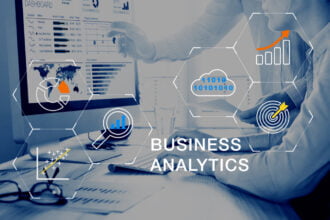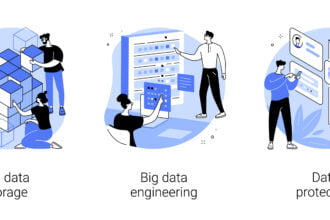Much has been written about managing an enterprise BI Program and implementing data governance. Both of these are key ingredients to business value, but even with well-run BI and data governance programs, business people can get different results when they access different BI deliverables. When this happens, they have to either reconcile or debate the differences. Either way, they’re wasting their time massaging data rather than using it to make business decisions.
Much has been written about managing an enterprise BI Program and implementing data governance. Both of these are key ingredients to business value, but even with well-run BI and data governance programs, business people can get different results when they access different BI deliverables. When this happens, they have to either reconcile or debate the differences. Either way, they’re wasting their time massaging data rather than using it to make business decisions.
BI deliverables need solid report governance in order to provide consistent information with which the business can make decisions. Report governance includes not only reports but also dashboards, scorecards, self-service BI, ad-hoc query, OLAP (on-line analytical processing) analysis, predictive analytics, data visualization, data mining and spreadsheets along with the data used. It is more accurate to refer to this as “analytical governance” rather than just report governance.
Debating the numbers
Why do enterprises keep encountering these problems even when the data is fairly well managed from source systems to their enterprise data warehouse (EDW)? The reason is a lack of consistency: after data leaves the EDW it gets filtered and transformed, and then and different business rules are applied in the various BI objects. As tempting as it may be to blame this on business people who manipulate data in their own spreadsheets, the reality is that IT is just as culpable. This is because different IT people develop reports for different business groups independently.
What starts out as consistent data goes by the wayside because that data is manipulated in countless ways before the business people see it in various reports, dashboards or spreadsheets. And if the enterprise does not have data governance discipline the problems are even greater.
Further compounding the problem is that a large enterprise typically has from six to nine BI products — each one doing things differently.
What to do and what traps to avoid
Typically IT reacts to the above conditions by:
- Establishing a very arduous BI design, development and deployment process.
- Trying to lock down reporting by making it difficult for business people to create spreadsheet reports that pull data from various data sources
- Consolidating the enterprise to a single BI tool
All of these are bad ideas.
Building up an arduous BI process or trying to limit the use of spreadsheets goes completely against the primary objective of BI, i.e. to enable the business to access data, analyze it and act upon the analysis. After all, what good is data if it is not used for a business purpose? And in the absence of comprehensive and consistent BI, business people will fill-in the vacuum with spreadsheets and spreadmarts or data shadow systems. IT should have no illusions that they can (nor should) prevent the business from using spreadsheets. Business people have to make decisions whether they have the data or not, so it is better that they have it.
Although consolidation onto a single BI tool seems appealing, the reality is that is becomes a very long-drawn out political battle to select one tool and then a long-drawn out migration that initially only delivers the same report only in different tool. The ROI for this initiative is weak at best and too often fails to get to one tool since typically the other BI reports are left as legacy (and development continues in them regardless of what people claim.)
Next…. What to Do and The Business Value







